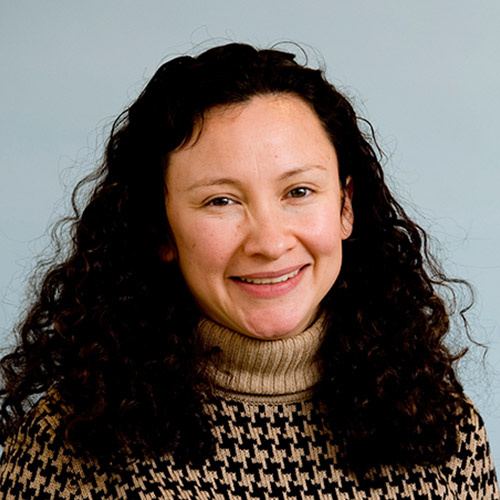-
- Find Care
-
- Visitor Information
- Find a Location
- Shuttles
- Visitor Policies
-
-
-
- Our Virtual Care Options
- Virtual Urgent Care
- Virtual Visits for Primary & Specialty Care
- Online Second Opinions
- Participate in Research
-
- Contact us
-
- For Innovators
- Commercialization Guide for Innovators
-
-
- Research News
- Alzheimer's Disease
- Artificial Intelligence
-
- Overview
-
- Overview
- Getting Started
- New to Mass General Brigham
- International Patient Services
- What Is Patient Gateway?
- Planning Your Visit
- Find a Doctor (opens link in new tab)
- Appointments
- Patient Resources
- Health & Wellness
- Flu, COVID-19, & RSV
- Billing & Insurance
- Financial Assistance
- Medicare and MassHealth ACOs
- Participate in Research
- Educational Resources
- Visitor Information
- Find a Location
- Shuttles
- Visitor Policies
- Find Care
-
- Overview
- Our Virtual Care Options
- Virtual Urgent Care
- Virtual Visits for Primary & Specialty Care
- Online Second Opinions
-
- Overview
- Participate in Research
-
- Overview
- About Innovation
- About
- Team
- News
- For Industry
- Venture Capital and Investments
- World Medical Innovation Forum (opens link in new tab)
- Featured Licensing Opportunities
- For Innovators
- Commercialization Guide for Innovators
- Contact us
-
- Overview
- Information for Researchers
- Compliance Office
- Research Cores
- Clinical Trials
- Advisory Services
- Featured Research
- Two Centuries of Breakthroughs
- Advances in Motion (opens link in new tab)
- Brigham on a Mission (opens link in new tab)
- Gene and Cell Therapy Institute
- Research News
- Alzheimer's Disease
- Artificial Intelligence
-
- Overview
-
- Overview
- Residency & fellowship programs
- Brigham and Women's Hospital
- Massachusetts General Hospital
- Mass Eye and Ear
- Newton-Wellesley Hospital
- Salem Hospital
- Integrated Mass General Brigham Programs
- Centers of Expertise
- Global & Community Health
- Health Policy & Management
- Healthcare Quality & Patient Safey
- Medical Education
- For trainees
- Prospective trainees
- Incoming trainees
- Current trainees
- Continuing Professional Development
Tips to Keep Kids Safe Over the Holidays

It’s the holiday season, and the most wonderful time of the year for many. Friends and family gather to celebrate old traditions and make new memories. Amid the fun, the holidays also can bring new challenges for children’s health and safety.
To keep the holidays focused on being together and avoid unnecessary doctor’s visits, take a few minutes to go through the following recommendations, says Alexy Arauz Boudreau, MD, MPH, a Mass General Brigham pediatrician. Dr. Arauz Boudreau is associate chief of Pediatrics for Primary Care at Massachusetts General Hospital and medical director for Population Health Management at Mass General for Children.
Dr. Arauz Boudreau and other Mass General Brigham experts share holiday health and safety tips. Learn how to help keep everyone as happy and healthy as possible during your seasonal celebrations.
Safe holiday gatherings: Illness prevention tips
“Holiday gatherings create shared memories and bring together multiple generations. Often the more, the merrier,” says Dr. Arauz Boudreau. “Indoor settings are also the perfect environments to spread respiratory viruses. However, there are steps we can all take to keep our family and friends safer.”
Dr. Boudreau recommends you:
Stay up-to-date with your vaccines for COVID-19 and flu. Vaccines help protect both you and your loved ones from serious illness, particularly babies, children, the elderly, and immunocompromised individuals.
Learn how to protect yourself against RSV. If you are age 60 and older, you may be eligible to receive an RSV vaccine. To protect their infant, pregnant people are encouraged to get an RSV vaccine. Infants also may receive monoclonal antibody treatments, depending on their age and health history.
Wash your hands often with soap and water to help prevent the spread of illnesses like the common cold and strep. Avoid touching your face with unwashed hands.
Cover your mouth when sneezing or coughing. Wash your hands after blowing your nose, coughing, or sneezing. Set an example for your children and teach them how to do this.
Clean and disinfect surfaces. It’s especially important to clean those that are touched often, like doorknobs.
Stay home if you feel sick. Get a COVID test if you have symptoms or you’ve been in close contact with someone who has COVID-19.
Safe food preparation
Toy safety
While unwrapping toys and gifts can be source of great joy for kids, the presents themselves can cause problems if they’re not used safely. Parents should establish ground rules for safe play and never leave young children to play unsupervised. And don’t forget to dispose of wrapping supplies safely.
Eye injury prevention
Fire safety for the holidays
Burns prevention and treatment
Following Dr. Schulz’s fire safety tips can help prevent burns. There are other potential sources of burns around the home, like a hot cup of coffee or an unlocked cleaning cupboard. To prevent burns from liquids or household chemicals, he recommends the following safety checks at home or on the road visiting family and friends:
- Set the hot water below 120 degrees.
- Check bath temperatures before a child gets in.
- Be careful when holding warm beverages and keep cups out of arm’s reach of children.
- Childproof any cabinets where strong chemicals, like oven cleaners or drain cleaners, are stored.
Even with all the proper precautions, accidents can happen. Treatment for burns depends on how severe the burn is, and what caused it. For minor burns, clean the skin with soap and water if necessary. Avoid using ice. For more severe burns with blistering, or any burn caused by a chemical, seek medical care urgently.
Poisoning
Accidental poisonings can happen anytime, not just during the holidays. But with all the extra activity and departure from the regular routine, there’s extra potential for exposure. Dr. Lai-Becker explains how to recognize the signs of poisoning and how to perform first aid.
Signs and symptoms of poisoning include:
- Loss of consciousness
- Hyperactivity or agitation (moving nervously, fidgeting)
- Vomiting or abdominal pain
- Trouble urinating
- Drowsiness
- Confusion
- Difficulty breathing
Call poison control immediately at 1-800-222-1222, or 9-1-1 if a child loses consciousness or has trouble breathing. If you have guests, remind them to keep their medications in tamper-resistant bottles.
Carbon monoxide (CO) poisoning is more common in cold weather, when people start heating their homes. Gas-powered furnaces and heaters can release the odorless, colorless gas if they haven’t been maintained properly. Other causes of CO poisoning can include improperly vented generators or fireplaces.
If a CO detector goes off in your home, “Just get everybody outside. Don’t pause to open the windows or call the fire department. Even if you’re not sure—get outside and then call for help,” says Jonathan Slutzman, MD, a Mass General Brigham emergency medicine doctor.
Plan ahead to stay safe.
It’s not too late to plan ahead and coordinate with loved ones to have a happy holiday season!

Contributor

Contributor

Contributor

Contributor

Contributor

Contributor

Contributor



